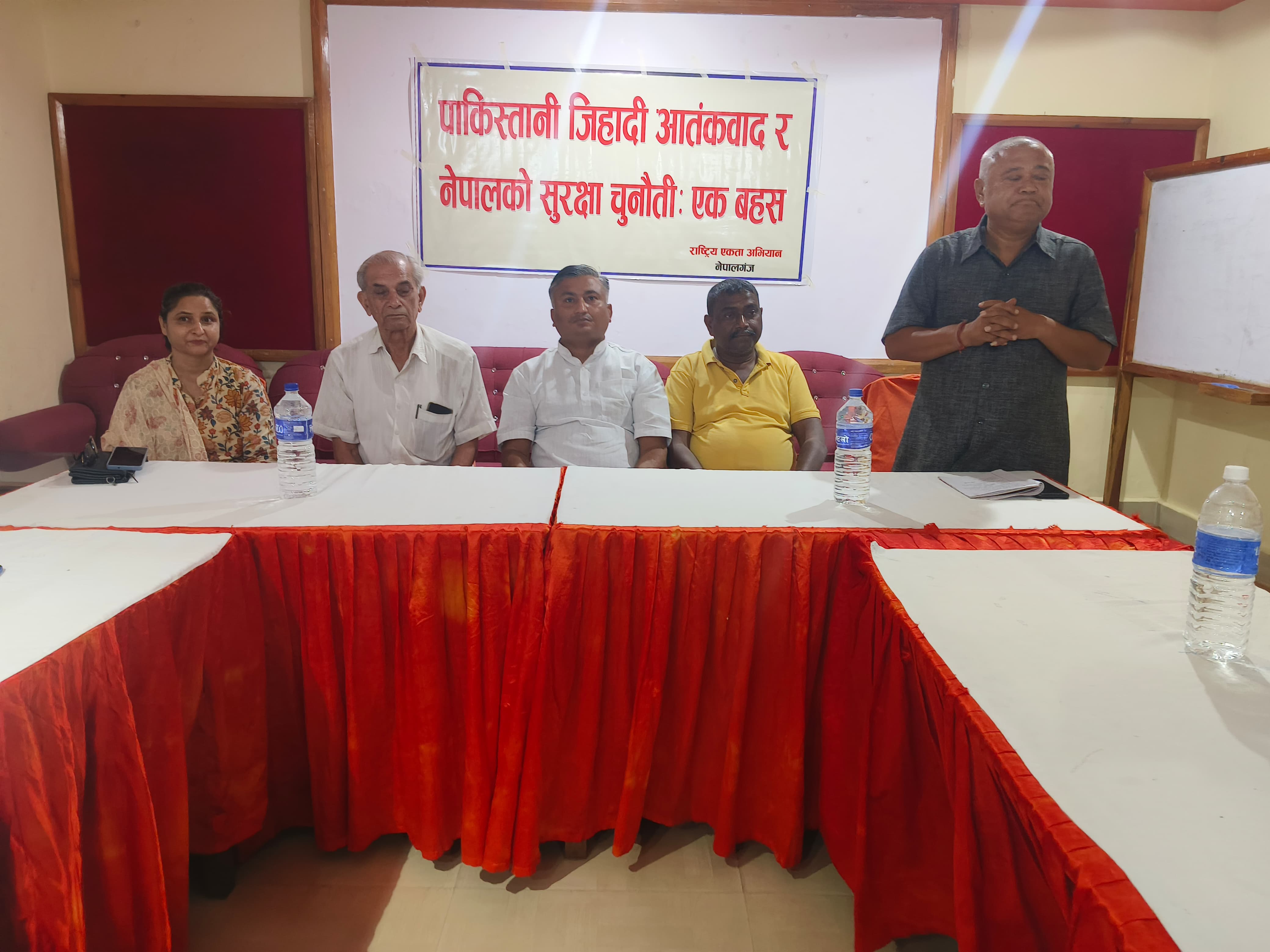How Pakistani Terror Networks Are Turning Nepal Into a Dangerous Hideout!

Nepalgunj — At a debate organized by the National Unity Campaign in Nepalgunj on the topic “Pakistani Jihadi Terrorism and Nepal’s Security Challenges,” speakers expressed deep concern over the serious threats and challenges rising against the security and peace of our country, highlighting the issue both emotionally and pragmatically.
Vinay Yadav, Central Chairman of the National Unity Campaign and the chief guest of the event, said that Pakistani-backed terrorist groups have not only turned Nepal–India’s open border into a major internal security challenge but have also sown fear and anxiety among the general public. “We must all be vigilant and united to ensure that no corner of Nepal is overshadowed by terrorism,” he said with a voice full of emotion.
Recalling how notorious terrorists like Abdul Karim Tunda, Saifullah, and Yasin Bhatkal used Nepal as if it were their own home, Yadav emphasized, “It is our shared responsibility to ensure such circumstances never recur in our country. Our youth must be safe, and we must guarantee that.”
Other speakers, including Organization General Secretary Hark Swar, Central Member Bam Bahadur Shahi, and Parvati Aryal, spoke about the evolving nature of terrorism and its impact on Nepal’s social harmony. They pointed out that since the 1980s, Pakistan’s intelligence agency ISI has strategically used Nepal to spread terrorism in Kashmir, addressing the fear and uncertainty growing within Nepali society.
Recently, the killing of Nepali youth Sudip Neupane in Pahalgam, Jammu and Kashmir, was not just a tragic incident but a stark warning of the threat Pakistan-backed terrorism poses to Nepali youth, the speakers said. “This incident has deeply pained us all and has shown the urgent need for us to stand firmly against such inhuman crimes,” Yadav said with emotion.
Swar also stressed that Nepal’s diplomatic policy must be clear and strict to prevent becoming a hideout for terrorists. “Pakistan is using Nepal to create discomfort in Nepal–India relations, and we all must be vigilant to protect our country from this,” he added.
Addressing the program, Chairman Yadav expressed sorrow over SAARC’s inactivity and the regional unity crisis caused by Pakistan. “We can no longer remain passive; this is a matter of our security,” he said.
Other intellectuals, journalists, security analysts, and former officials present at the program supported raising voices at all levels against the spread of terrorism within Nepal and urged all parties to unite and work for national security.
The National Unity Campaign expressed its commitment to raising more awareness and gathering cooperation to protect Nepal’s peace and stability and to reduce the threats emerging from the misuse of the open border.




![From Kathmandu to the World: How Excel Students Are Winning Big [Admission Open]](https://nepalaaja.com/img/70194/medium/excel-college-info-eng-nep-2342.jpg)
